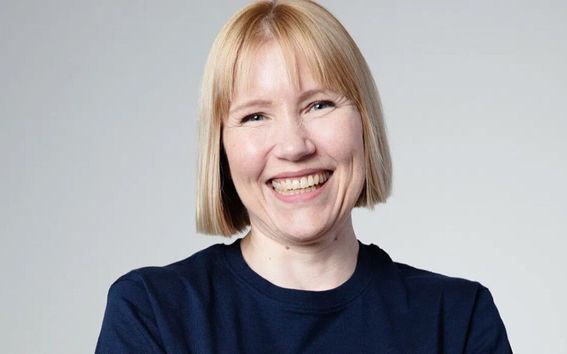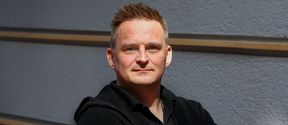Johanna from Relex: "Find a problem that is relevant and above all, meaningful to you"
The birth of RELEX in 2005 was sparked by founders' shared frustration over huge wastage of products, time, and financial resources within the operations of retailers, wholesalers, and manufacturers.

Hi Johanna! Could you tell us in short what RELEX Solutions does and what is your mission?
Of course! RELEX Solutions is a SaaS company that helps retailers and consumer brands optimize their supply chain and retail planning. Our primary goal is to enhance adaptability and efficiency across the consumer goods value chain. We achieve this by leveraging advanced algorithms for optimization. In addition to supply chain optimization, we also optimize other aspects of business operations such as use of retail space, human resources and capacity.
RELEX was founded in 2005 and we currently employ over 1,800 people in 21 different offices in 15 countries around the world.
What specific problem is RELEX solving and what sparked the inception of this venture?
The birth of RELEX in 2005 was sparked by a shared frustration. As I collaborated with RELEX's to-be co-founders, Mikko Kärkkäinen and Michael Falck, while doing research together at Helsinki University of Technology, we became acutely aware of the huge wastage of products, time, and financial resources within the operations of retailers, wholesalers, and manufacturers.
You serve customers from supermarkets to furniture stores and pet retailers. What types of challenges do you encounter with different customers?
That’s true, our customer base is quite diverse and each one of our customers come with their own intricacies. For instance, bookstores deal with extreme seasonal fluctuations, especially during the holiday season. Unlike some other sectors that also face seasonal volatility, the challenge lies in the absence of historical data from past years to rely upon, given that all the bestselling books are new each year. With grocery stores, again, a major priority is to safeguard perishable products such as vegetables, meat or dairy, from spoilage, given their limited shelf life. This is crucial as any wastage is detrimental environmentally and financially.
However, I think it is exactly the complexity and challenging nature of this business that makes it so interesting to me.
You have been in the supply chain business for a while. How has the game changed since you started?
Big time! These days companies need to adapt to evolving situations faster than ever before because things can flip around almost overnight. The COVID pandemic, in particular, was a true wakeup call for a myriad of industries. Suddenly, the demand for toilet paper and pasta skyrocketed, for example, and retailers had to pivot fast. Elsewhere, the unexpected shortage of microchips caused headaches to companies in various sectors, from consumer electronics to automobile and industrial companies.
And the disruptions haven’t stopped there - geopolitical tensions, inflation, natural disasters and other global issues have kept the rollercoaster going. Without good supply chain visibility and ability to adapt to evolving situations, companies are really lost in these kinds of uncertain situations and risk jeopardizing their whole business.
You mentioned that a grocery store’s failure to optimize its supply chain can lead to excessive food wastage. Could you tell us more about how sustainability can be integrated into supply chain and retail planning?
Certainly! Sustainability and cost-efficiency often go hand in hand in this field. At RELEX, for example, a significant area where we can have an impact lies in minimizing food waste. We help our clients save over 10 million kilograms of food waste annually through more accurate demand forecasting and precise store and distribution center replenishment. Additionally, with precise forecasting and planning, we ensure full truck loads when transporting goods and reduce the need for express deliveries.
However, great supply chain and retail planning can only extend so far. The biggest sustainability choice a company makes is in regards to its product choices and sourcing strategies.
You studied Industrial Engineering & Management at Helsinki University of Technology, Aalto’s predecessor school, and hold a PhD in the field, too. How have your studies shaped your journey?
Studying Industrial Engineering and Management gave me a solid toolkit for understanding processes and business basics, which are crucial knowledge for an entrepreneur. But as I already mentioned, my research days were the spark for RELEX. My colleagues and I saw supply chain issues everywhere during those projects, and that insight became the foundation of RELEX. As we had done mostly case research together with real companies, we had a solid understanding of which problems in supply chain management are company-specific and which ones are more ubiquitous - very useful knowledge when building our product later on.
Absolutely. And the research projects also paved the way for your collaboration with RELEX’s co-founders, Mikko and Michael, right?
That’s true. We all ended up working in the same research group. I was actually originally Michael’s thesis supervisor! Having worked together with them prior to founding RELEX was extremely beneficial as it allowed us to have a good understanding of each other’s working styles and personalities, which in turn provided a strong basis for our teamwork in running RELEX later on.
One last question before you go, Johanna. What advice would you give to someone looking to start their own company?
Find a problem that is relevant and above all, meaningful to you. For a lot of people impact-driven problems tend to be motivating. Ensure that there is a market willing to pay for your solution - it can be surprisingly hard.
Show other posts from this blog

Sonja from Kapacity.io: "Having true desire to make a meaningful impact through your business idea is crucial"
To succeed, you need to be persistent and critical of your own thinking, and keep on trying and searching until you come up with something not a lot of people have thought of before.
Peter from Vensum: "It’s crucial to have a clear vision of the impact you aim to make. "
Vensum’s story was ignited by the urgent need to address some of the main problems our energy system will face in the near future.
Upright: Enhancing the understanding of the true impact that companies have on the world
Especially the largest companies in the world have come to realise that measuring net impact is now an issue of “do or die.”